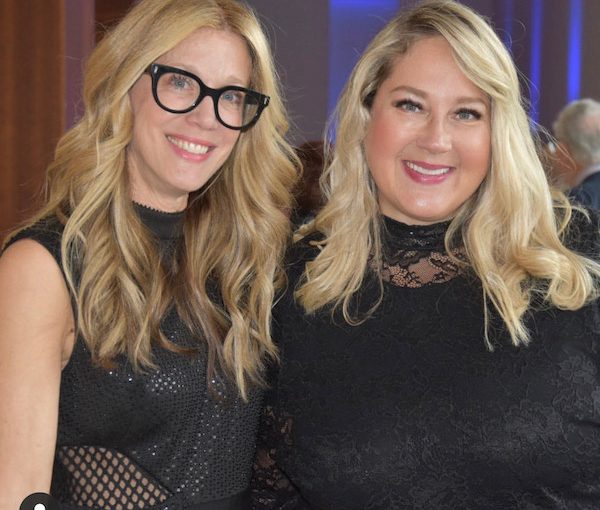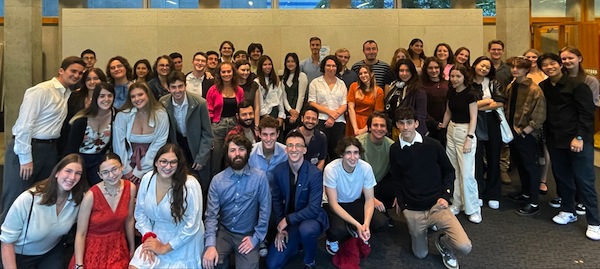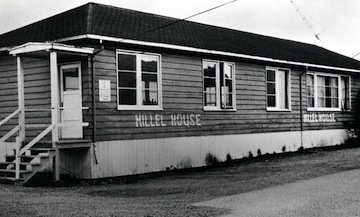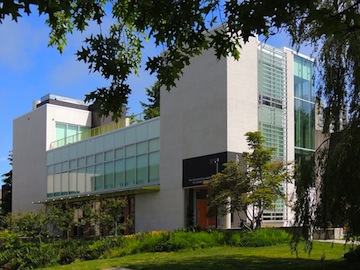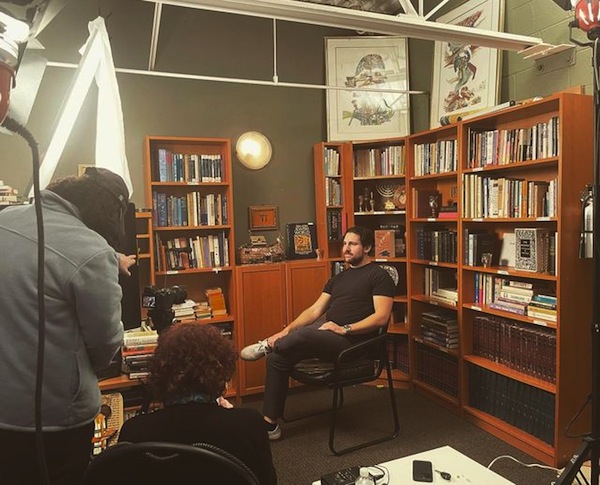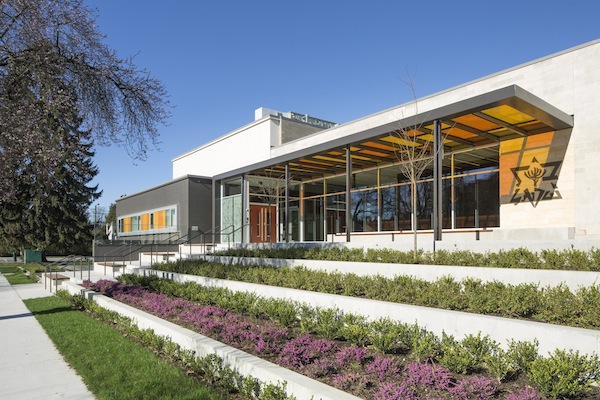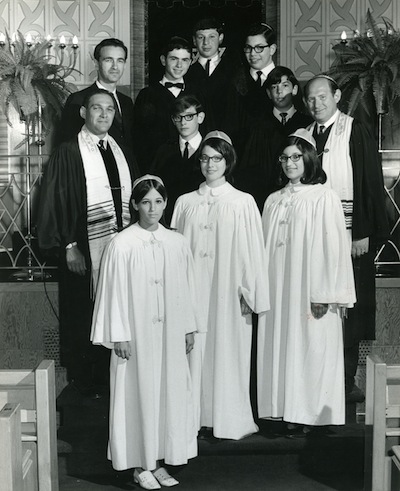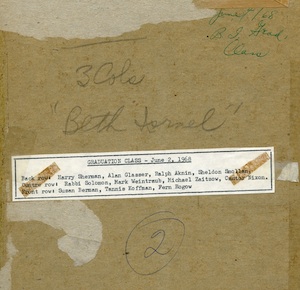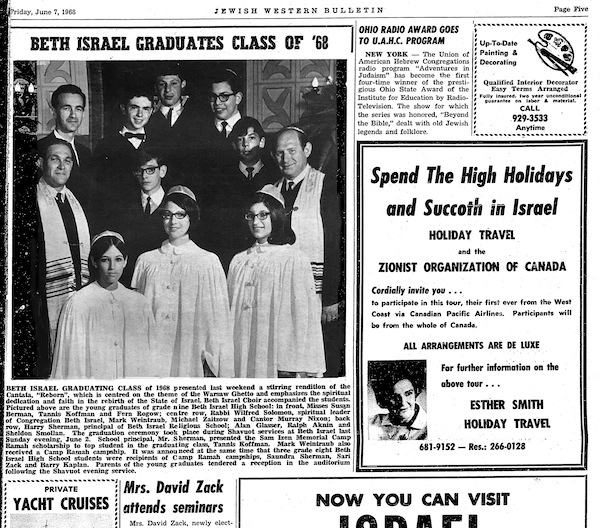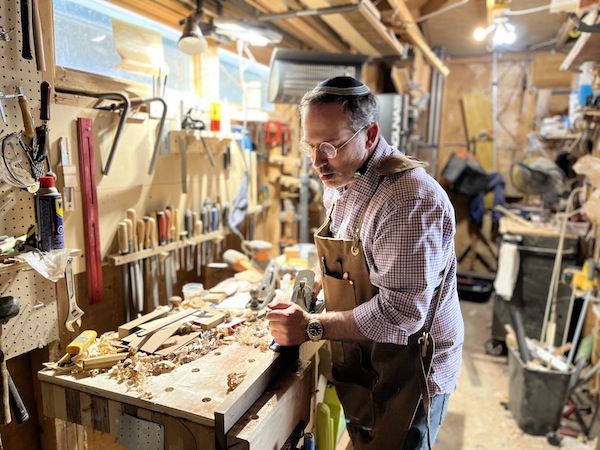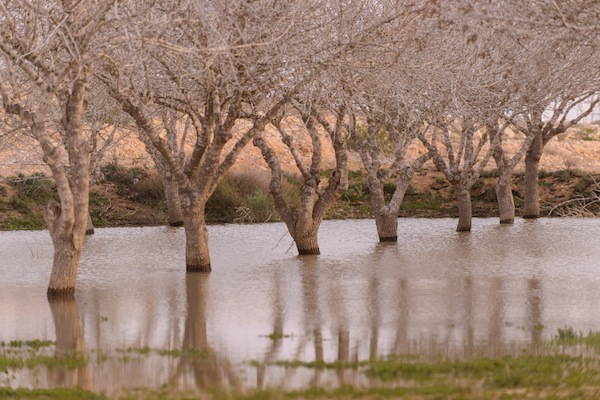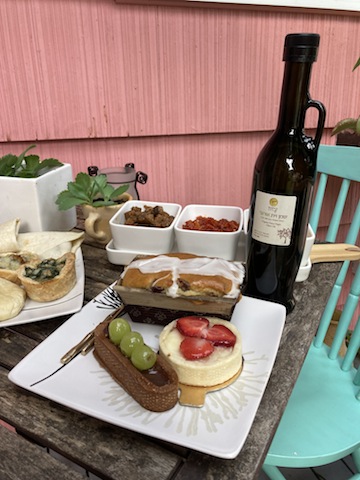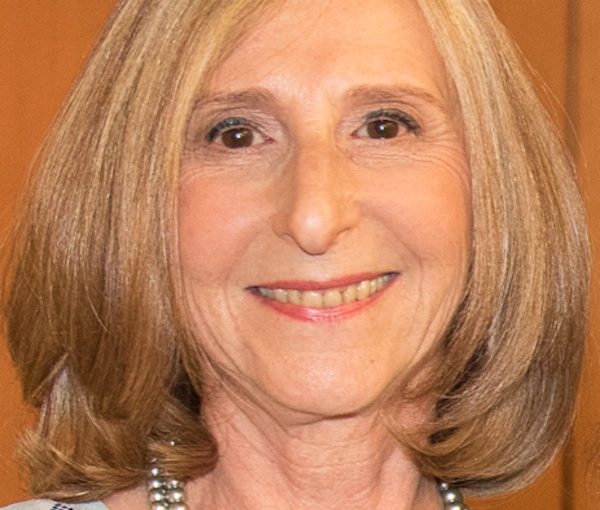Researchers at Ben-Gurion University of the Negev’s School of Sustainability and Climate Change have been experimenting with alternative ways of irrigating trees, in this case, by floodwater. (photo by Dani Machlis/BGU)
“It is in the Negev that the creativity and pioneer vigour of Israel shall be tested,” David Ben-Gurion, Israel’s first prime minister, predicted in 1955.
The country was not even a decade old. Ben-Gurion was trying to inspire a growing population of immigrants, including Holocaust survivors, to realize their collective potential – to not just embrace a new home, but to build a new, resilient future. That legacy, he maintained, would be found in the most unlikely of places: in the harsh expanse of the country’s southern water-poor and undeveloped desert. But their hard work, he insisted, could one day transform Israel.
“In order to be a realist, you must believe in miracles,” he said.
Today, his vision for the Negev lives on at the university that was founded in his name. Ben-Gurion University of the Negev sits, not coincidentally, at the northern tip of the desert. Some 13,000 square kilometres of semi-arid, rocky terrain make up the Negev, punctuated by dry riverbeds and desolate vistas. It’s on the cusp of this wilderness that Israel’s first School of Sustainability and Climate Change (SSCC) was established last October.
This June, Canadian Associates of Ben-Gurion University of the Negev will be holding a gala dinner in Vancouver to raise funds for the SSCC’s ongoing research. Co-chaired by Melita and Lorne Segal, the event will honour Royal Bank of Canada’s B.C. regional president, Martin Thibodeau, for his community-building efforts.
Existential research
According to BGU president Daniel Chamovitz, environmental research has always been a part of BGU’s mission. Water reclamation, sustainable food production and creating plant species that can survive in adverse environmental conditions have been continuing themes of study since the university’s inception in 1969. Establishing a school that could serve as an umbrella for diverse areas of climate and sustainability research was a natural progression.
“We are the engine, by necessity, of development and change in the Negev,” Chamovitz said. That existential motivation has not only led to new ways to desalinate sea water for industrial purposes and engineer new foods, but new collaborative opportunities with countries experiencing climate impacts. The university is home to three campuses that house climate- and sustainability-related studies, as well as a business park with more than 70 multinational companies. It’s also become fertile ground for Israel’s start-up industry and research collaboration.
Chamovitz said countries like the United Arab Emirates (UAE) and Morocco are looking to partner to solve common environmental challenges. Desertification, the erosion of arable lands driven by a changing climate and urbanization, now affects more than one-sixth of the world’s population. There are also real-time challenges in the Middle East, where dry lands predominate but research experience may be limited.
“The Abraham Accords here have been essential for the growth of the school,” said Chamovitz. It’s not only opened doors for political alliances, it’s fostered new research partnerships for institutions like BGU, he said.
“For 50 years, we have been learning to live in our desert,” he added, noting that what was once seen in Israel as a hyper-local challenge – how to live in a desert – has become a concern for an increasing number of countries.
This month, a delegation from Morocco’s Mohammed VI Polytechnic University (UM6P) arrived in Israel to discuss a new research partnership with the university. The collaboration, which will focus broadly on addressing food insecurity, demands for smart agriculture and alternative energy options, will also lead to educational partnerships with UM6P. “They are very excited,” Chamovitz said. “We already have our first students [from Morocco].”
But international collaboration isn’t the only byproduct of the SSCC. There’s growing interest within Israel, as well.
“[The] school has become the magic dust which influences everything,” Chamovitz said, noting that departments and researchers without any seeming connection to climate change and sustainability are identifying ways to explore environmental subjects.
“One of the most surprising and fulfilling outcomes,” he said, “is that our department of Hebrew literature.… That’s when we knew we had succeeded – when Hebrew literature became part of the school.”
Prof. Noam Weisbrod, who directs SSCC’s Jacob Blaustein Institutes for Desert Research, estimates that about 70% of BGU desert research, in one way or another, touches on topics related to climate change and sustainability. The list of departments is diverse, ranging from biology and medical sciences, to environmental geography and earth sciences.
“The idea is to team up and create a force which is focusing on climate change and sustainability and their impacts in different angles and different directions, and to enable multidisciplinary research” that attracts students who can lead the next generation of research into sustainable ways to combat climate change, Weisbrod said.
Mitigation imperative
In February of this year, the International Panel on Climate Change released its sixth report: Climate Change 2022: Impacts, Adaptation and Vulnerability.
“Approximately 3.3 to 3.6 billion people live in contexts that are highly vulnerable to climate change,” the IPCC stated, noting that “current unsustainable development patterns are increasing exposure of ecosystems and people to climate hazards.”
“Diminishing resources is a real challenge,” said Weisbrod, adding that the solutions may lie in how we manage those precious resources. “There is a lot of research on how to get more crop for drop of water. I like that sentence, ‘more crop for drop,’ because this is what we’re trying to do – to get the maximum crop for minimum resources,” he said.
The latest IPCC report suggests humanity is on the right path. Countries like the United Arab Emirates are taking action to protect water resources and reduce climate change impacts like desertification, steps that are part of BGU’s cooperative strategies with UAE.
According to Chamovitz, many of these advances wouldn’t be possible without investors that are willing to support sustainability initiatives. He noted that RBC was one of the SSCC’s first donors and has been important to the school’s success – in 2020, RBC, British Columbia, sponsored the first two research fellowships at SSCC.
Chamovitz will be a special guest at the Ben-Gurion University Gala Dinner for Sustainability and Climate Change on June 9 at Fairmont Pacific Rim. Tickets for the event are available from bengurion.ca/vancouver-gala-2022.
Jan Lee is an award-winning editorial writer whose articles and op-eds have been published in B’nai B’rith Magazine, Voices of Conservative and Masorti Judaism and Baltimore Jewish Times, as well as a number of business, environmental and travel publications. Her blog can be found at multiculturaljew.polestarpassages.com.

